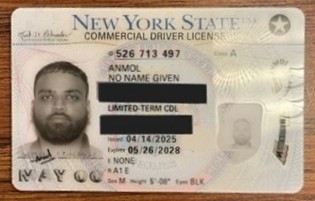Pictured: Allan Wall
Happy Hunting with McGirt V. Oklahoma
By Allan Wall
A decision of the Supreme Court of the United States (SCOTUS) can have a life of its own. It may take years to develop, moving into various nooks and crannies of the law, in ways the Justices never foresaw nor intended.McGirt v. Oklahoma, a 2020 ruling by SCOTUS continues to spread its wings and is now moving into hunting and game law. McGirt and the companion case Sharp v. Murphy, were decided in 2020, both based on 1990s criminal cases.
Jimcy McGirt was a child molester and Patrick Murphy a murderer. Their attorneys argued that since McGirt and Murphy were Indians, and their alleged crimes were committed on reservations, they could only be tried in tribal or federal courts.
But there are no Indian reservations in Oklahoma. They were all abolished by statehood in 1907.
No problem. The McGirt vs. Oklahoma and Sharp v. Murphy decisions declared that the Muscogee (Creek) Reservation was still in existence – it’s just that nobody knew it for more than a century!
The decision was almost immediately extended to the other four tribes formerly known as the Five Civilized Tribes – the Seminole, the Choctaw, the Chickasaw and the Cherokee.
Eventually courts also granted five small northeastern tribes (Quapaw, Ottawa, Peoria, Miami and Wyandotte) their reservations also.
So, ten tribes supposedly have reservations. That’s a big chunk of the state, mostly in eastern Oklahoma. It includes most of Tulsa, supposedly part of the Creek reservation, with a portion in the Cherokee reservation.
In June of this year, Tulsa’s Mayor Monroe Nichols announced an agreement with the Muscogee (Creek) tribe in which the city of Tulsa pledges not to bring charges against American Indians in the city. It doesn’t just apply to McGirt decision tribes, but to any member of any of the 574 federally-recognized Indian tribes in the United States!
Now the Oklahoma Department of Wildlife Conservation (ODWC) is engaged in a dispute with the tribes. For years Indians have been able to hunt and fish on tribal land without a regular hunting license. Instead, they use their tribal membership card as a license.
But what is tribal land? Formerly it was land actually owned and administered by a tribe or tribal members. Now, under the McGirt Doctrine, “tribal land” would be (look at the map) most of eastern Oklahoma.
In October the ODWC issued an order that ruffled some feathers among tribal governments. Here’s what some chiefs had to say about the ODWC statement:
Choctaw Chief Gary Batton: “This letter is definitely stepping on our toes. It affects our tribal members, it’s our inherent right and has been since the beginning of time, and we’re going to defend it all that we can.”
Seminole Chief Sena Yesslith: “It’s our inherent right; it’s our sovereign right. To be attacking that is detrimental to our people.”
Chickasaw Governor Bill Anoatubby: “We have the right to exercise control and authority over this territory when it comes to hunting and fishing.”
Well, what did the ODWC statement actually say? Here it is:
“The Oklahoma Department of Wildlife Conservation (ODWC) reminds all hunters and anglers that state fish and wildlife laws apply to everyone in Oklahoma regardless of race, heritage, or background.
ODWC game wardens will continue to enforce the law and will issue citations to anyone in violation of the state’s fish and game laws, regardless of tribal citizenship. Our responsibility is to ensure consistent wildlife management and fair application of the law to protect Oklahoma’s natural resources for all citizens.
The Stroble v. Oklahoma Tax Commission case, which was decided July 1, 2025, by the Supreme Court of the State of Oklahoma, has provided clear legal confirmation that McGirt is limited to prosecuting crimes under the federal Major Crimes Act only.
Wildlife conservation depends on fairness and accountability, and we will continue to do our duty to enforce the law uniformly for all Oklahomans. Every license dollar funds the conservation programs that benefit hunters, anglers, and wildlife alike, so it is critical that every user contributes to this funding model that has made Oklahoma a top ten hunting and fishing destination. The Wildlife Department remains committed to protecting Oklahoma’s fish and wildlife resources for all citizens to enjoy."
Choctaw Chief Gary Batton also responded by telling tribal members this: “From our tribe, we would say function as normal. We will assist you if anybody tries to affect your right to hunt and fish.”
Will this set up a confrontation between ODWC and the Choctaw tribe? This would never have happened if not for the McGirt decision.
The U.S. Constitution, in Article I, Section 8, stipulates that “Congress shall have Power …To regulate Commerce … with the Indian Tribes.” Congress could simply declare that Oklahoma has no reservations. Case closed. Would the Oklahoma congressional delegation be willing to do anything about this?










Latest Commentary
Thursday 30th of October 2025
Thursday 30th of October 2025
Thursday 30th of October 2025
Thursday 30th of October 2025
Thursday 30th of October 2025
Thursday 30th of October 2025
Thursday 30th of October 2025
Thursday 30th of October 2025
Thursday 30th of October 2025